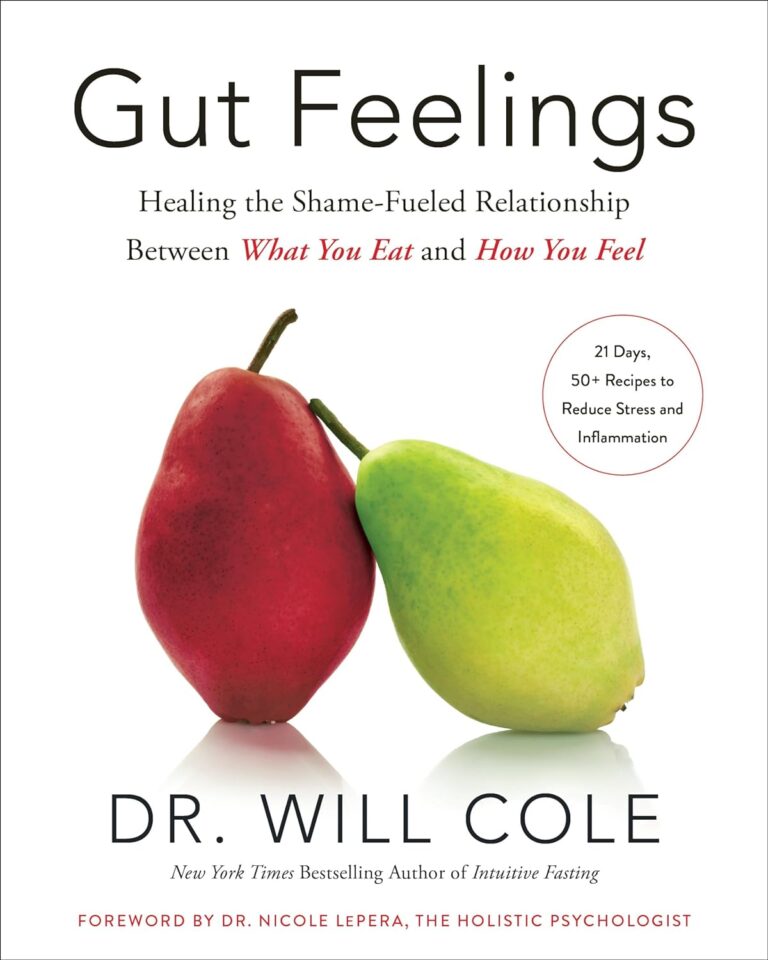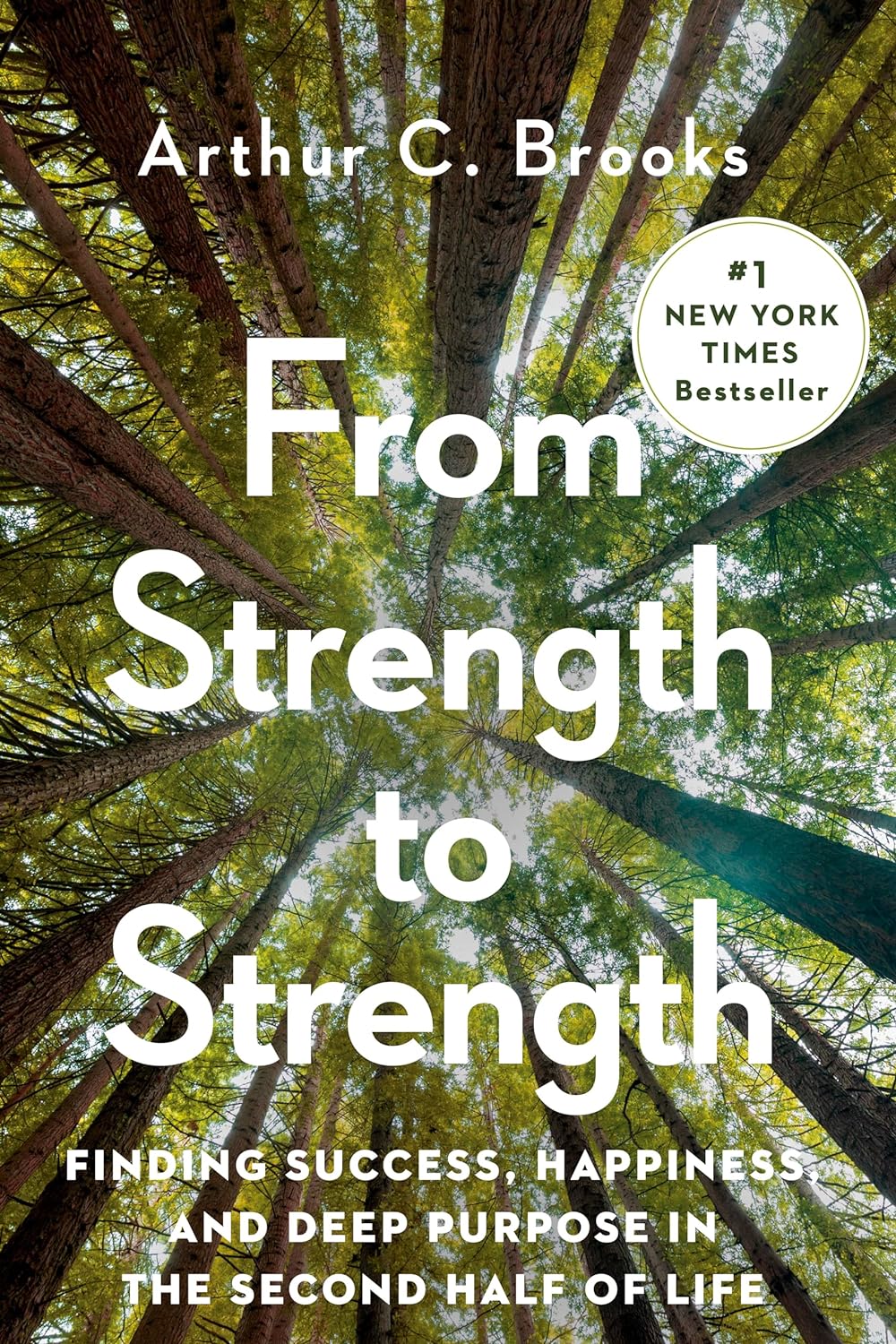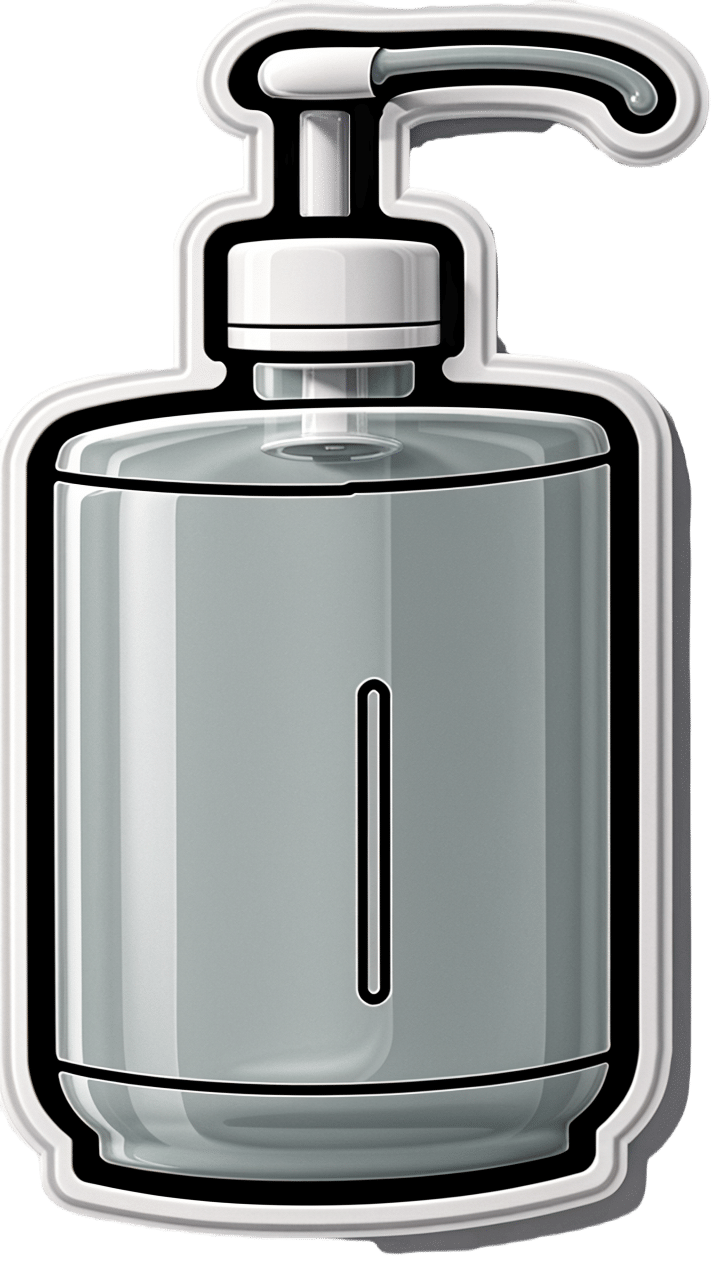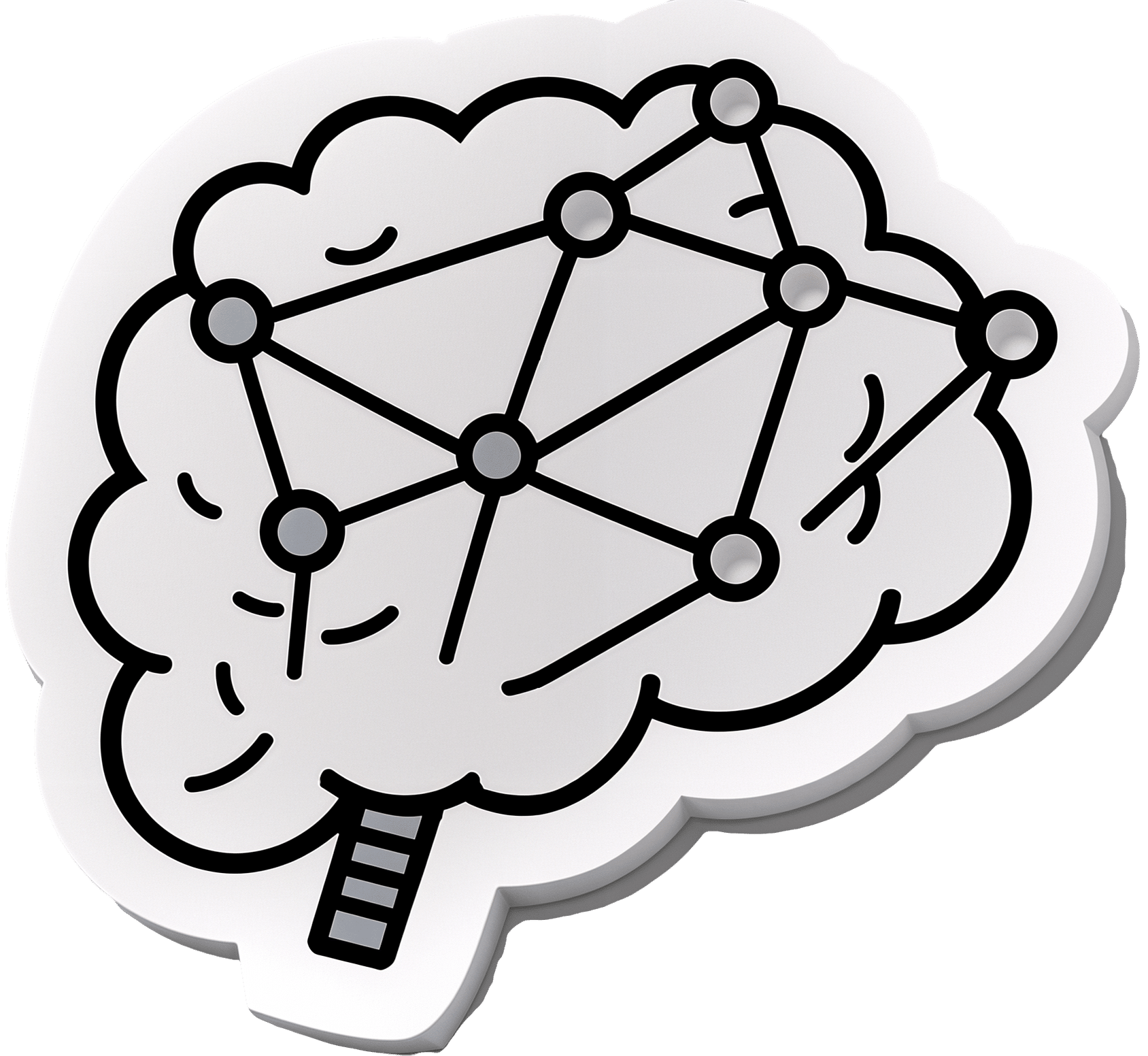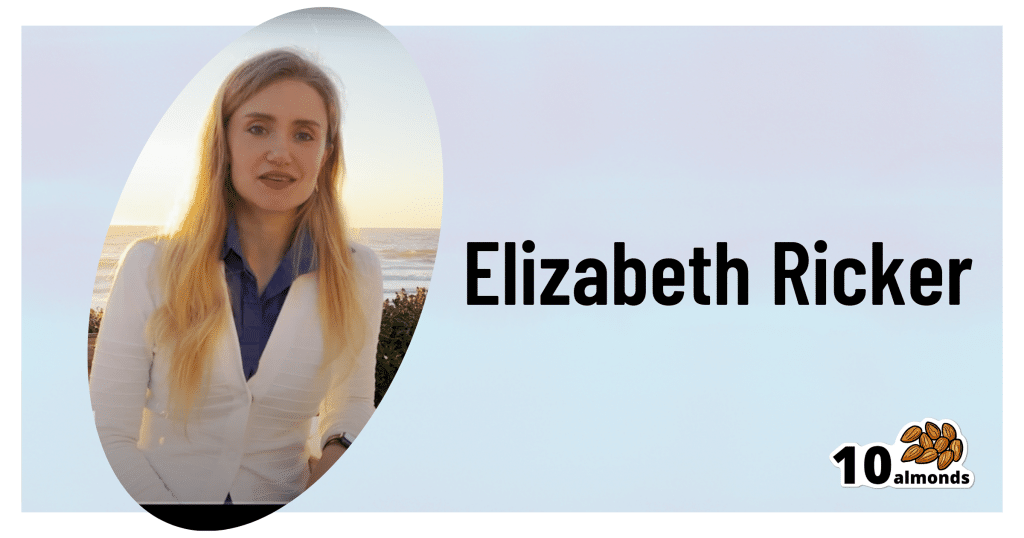
Own Your Past Change Your Future – by Dr. John Delony
10almonds is reader-supported. We may, at no cost to you, receive a portion of sales if you purchase a product through a link in this article.
This one is exactly what it says on the cover. It’s reminiscent in its premise of the more clinically-presented Tell Yourself A Better Lie (an excellent book, which we reviewed previously) but this time presented in a much more casual fashion.
Dr. Delony favors focusing on telling stories, and indeed this book contains many anecdotes. But also he bids the reader to examine our own stories—those we tell ourselves about ourselves, our past, people around us, and so forth.
To call those things “stories” may create a knee-jerk response of feeling like it is an accusation of dishonesty, but rather, it is acknowledging that experiences are subjective, and our framing of narratives can vary.
As for reframing things and taking control, his five-step-plan for doing such is:
- Acknowledge reality
- Get connected
- Change your thoughts
- Change your actions
- Seek redemption
…which each get a chapter devoted to them in the book.
You may notice that these are very similar to some of the steps in 12-step programs, and also some religious groups and/or self-improvement groups. In other words, this may not be the most original approach, but it is a tried-and-tested one.
Bottom line: if you feel like your life needs an overhaul, but don’t want to wade through a bunch of psychology to do it, then this book could be it for you.
Click here to check out Own Your Past To Change Your Future, and do just that!
Don’t Forget…
Did you arrive here from our newsletter? Don’t forget to return to the email to continue learning!
Recommended
Learn to Age Gracefully
Join the 98k+ American women taking control of their health & aging with our 100% free (and fun!) daily emails:
-
From Strength to Strength – by Dr. Arthur Brooks
10almonds is reader-supported. We may, at no cost to you, receive a portion of sales if you purchase a product through a link in this article.
For most professions, there are ways in which performance can be measured, and the average professional peak varies by profession, but averages are usually somewhere in the 30–45 range, with a pressure to peak between 25–35.
With a peak by age 45 or perhaps 50 at the latest (aside from some statistical outliers, of course), what then to expect at age 50+? Not long after that, there’s a reason for mandatory retirement ages in some professions.
Dr. Brooks examines the case for accepting that rather than fighting it, and/but making our weaknesses into our strengths as we go. If our fluid intelligence slows, our accumulated crystal intelligence (some might call it “wisdom“) can make up for it, for example.
But he also champions the idea of looking outside of ourselves; of the importance of growing and fostering connections; giving to those around us and receiving support in turn; not transactionally, but just as a matter of mutualism of the kind found in many other species besides our own. Indeed, Dr. Brooks gives the example of a grove of aspen trees (hence the cover art of this book) that do exactly that.
The style is very accessible in terms of language but with frequent scientific references, so very much a “best of both worlds” in terms of readability and information-density.
Bottom line: if ever you’ve wondered at what age you might outlive your usefulness, this book will do as the subtitle suggests, and help you carve out your new place.
Click here to check out From Strength To Strength, and find yours!
Share This Post
-
How To Leverage Placebo Effect For Yourself
10almonds is reader-supported. We may, at no cost to you, receive a portion of sales if you purchase a product through a link in this article.
Placebo Effect: Making Things Work Since… Well, A Very Long Time Ago
The placebo effect is a well-known, well-evidenced factor that is very relevant when it comes to the testing and implementation of medical treatments:
NIH | National Center for Biotechnology Information | Placebo Effect
Some things that make placebo effect stronger include:
- Larger pills instead of small ones: because there’s got to be more going on in there, right?
- Thematically-colored pills: e.g. red for stimulant effects, blue for relaxing effects
- Things that seem expensive: e.g. a well-made large heavy machine, over a cheap-looking flimsy plastic device. Similarly, medication from a small glass jar with a childproof lock, rather than popped out from a cheap blister-pack.
- Things that seem rational: if there’s an explanation for how it works that you understand and find rational, or at least you believe you understand and find rational ← this works in advertising, too; if there’s a “because”, it lands better almost regardless of what follows the word “because”
- Things delivered confidently by a professional: this is similar to the “argument from authority” fallacy (whereby a proposed authority will be more likely trusted, even if this is not their area of expertise at all, e.g. celebrity endorsements), but in the case of placebo trials, this often looks like a well-dressed middle-aged or older man with an expensive haircut calling for a young confident-looking aide in a lab coat to administer the medicine, and is received better than a slightly frazzled academic saying “and, uh, this one’s yours” while handing you a pill.
- Things with ritual attached: this can be related to the above (the more pomp and circumstance is given to the administration of the treatment, the better), but it can also be as simple as an instruction on an at-home-trial medication saying “take 20 minutes before bed”. Because, if it weren’t important, they wouldn’t bother to specify that, right? So it must be important!
And now for a quick personality test
Did you see the above as a list of dastardly tricks to watch out for, or did you see the above as a list of things that can make your actual medication more effective?
It’s arguably both, of course, but the latter more optimistic view is a lot more useful than the former more pessimistic one.
Since placebo effect works at least somewhat even when you know about it, there is nothing to stop you from leveraging it for your own benefit when taking medication or doing health-related things.
Next time you take your meds or supplements or similar, pause for a moment for each one to remember what it is and what it will be doing for you. This is a lot like the principles (which are physiological as well as psychological) of mindful eating, by the way:
How To Get More Nutrition From The Same Food
Placebo makes some surprising things evidence-based
We’ve addressed placebo effect sometimes as part of an assessment of a given alternative therapy, often in our “Mythbusting Friday” edition of 10almonds.
- In some cases, placebo is adjuvant to the therapy, i.e. it is one of multiple mechanisms of action (example: chiropractic or acupuncture)
- In some cases, placebo is the only known mechanism of action (example: homeopathy)
- In some cases, even placebo can’t help (example: ear candling)
One other fascinating and far-reaching (in a potentially good way) thing that placebo makes evidence-based is: prayer
…which is particularly interesting for something that is fundamentally faith-based, i.e. the opposite of evidence-based.
Now, we’re a health science publication, not a theological publication, so we’ll consider actual divine intervention to be beyond the scope of mechanisms of action we can examine, but there’s been a lot of research done into the extent to which prayer is beneficial as a therapy, what things it may be beneficial for, and what factors affect whether it helps:
Prayer and healing: A medical and scientific perspective on randomized controlled trials
👆 full paper here, and it is very worthwhile reading if you have time, whether or not you are religious personally
Placebo works best when there’s a clear possibility for psychosomatic effect
We’ve mentioned before, and we’ll mention again:
- psychosomatic effect does not mean: “imagining it”
- psychosomatic effect means: “your brain regulates almost everything else in your body, directly or indirectly, including your autonomic functions, and especially notably when it comes to illness, your immune responses”
So, a placebo might well heal your rash or even shrink a tumor, but it probably won’t regrow a missing limb, for instance.
And, this is important: it’s not about how credible/miraculous the outcome will be!
Rather, it is because we have existing pre-programmed internal bodily processes for healing rashes and shrinking tumors, that just need to be activated—whereas we don’t have existing pre-programmed internal bodily processes for regrowing a missing limb, so that’s not something our brain can just tell our body to do.
So for this reason, in terms of what placebo can and can’t do:
- Get rid of cancer? Yes, sometimes—because the body has a process for doing that; enjoy your remission
- Fix a broken nail? No—because the body has no process for doing that; you’ll just have to cut it and wait for it to grow again
With that in mind, what will you use the not-so-mystical powers of placebo for? What ever you go for… Enjoy, and take care!
Share This Post
-
The Life-Changing Manga Of Tidying Up – by Marie Kondo
10almonds is reader-supported. We may, at no cost to you, receive a portion of sales if you purchase a product through a link in this article.
Everyone knows the slogan “does this spark joy?”, but there’s a whole method to the magic that goes far beyond that. It spans all manner of things from the over-arching strategy of taking on a house-sized tidying project, to practical little tips like “store these things this way instead; now they’re safe, tidy and accessible—and look good too!”.
You may be wondering: why are we reviewing this book instead of the much more famous “The Life-Changing Magic of Tidying Up”?
It’s simple: here at 10almonds, we like things to be super simple and easy to digest.
This book is smaller, simpler, and more digestible than her more famous book, without sacrificing content. And you know what? We held it in our hands and it sparked joy
Bottom line is: it’s useful, it’s beautiful, it will change your life (and your underwear drawer).
PS: this 10almonds team-member gifted a copy to her 12-year-old son. He implemented it the same day, unbidden. Magic indeed!
Share This Post
Related Posts
-
The Truth About Handwashing
10almonds is reader-supported. We may, at no cost to you, receive a portion of sales if you purchase a product through a link in this article.
Washing Our Hands Of It
In Tuesdays’s newsletter, we asked you how often you wash your hands, and got the above-depicted, below-described, set of self-reported answers:
- About 54% said “More times per day than [the other options]”
- About 38% said “Whenever using the bathroom or kitchen
- About 5% said “Once or twice per day”
- Two (2) said “Only when visibly dirty”
- Two (2) said “I prefer to just use sanitizer gel”
What does the science have to say about this?
People lie about their handwashing habits: True or False?
True and False (since some people lie and some don’t), but there’s science to this too. Here’s a great study from 2021 that used various levels of confidentiality in questioning (i.e., there were ways of asking that made it either obvious or impossible to know who answered how), and found…
❝We analysed data of 1434 participants. In the direct questioning group 94.5% of the participants claimed to practice proper hand hygiene; in the indirect questioning group a significantly lower estimate of only 78.1% was observed.❞
Note: the abstract alone doesn’t make it clear how the anonymization worked (it is explained later in the paper), and it was noted as a limitation of the study that the participants may not have understood how it works well enough to have confidence in it, meaning that the 78.1% is probably also inflated, just not as much as the 94.5% in the direct questioning group.
Here’s a pop-science article that cites a collection of studies, finding such things as for example…
❝With the use of wireless devices to record how many people entered the restroom and used the pumps of the soap dispensers, researchers were able to collect data on almost 200,000 restroom trips over a three-month period.
The found that only 31% of men and 65% of women washed their hands with soap.❞
Source: Study: Men Wash Their Hands Much Less Often Than Women (And People Lie About Washing Their Hands)
Sanitizer gel does the job of washing one’s hands with soap: True or False?
False, though it’s still not a bad option for when soap and water aren’t available or practical. Here’s an educational article about the science of why this is so:
UCI Health | Soap vs. Hand Sanitizer
There’s also some consideration of lab results vs real-world results, because while in principle the alcohol gel is very good at killing most bacteria / inactivating most viruses, it can take up to 4 minutes of alcohol gel contact to do so, as in this study with flu viruses:
In contrast, 20 seconds of handwashing with soap will generally do the job.
Antibacterial soap is better than other soap: True or False?
False, because the main way that soap protects us is not in its antibacterial properties (although it does also destroy the surface membrane of some bacteria and for that matter viruses too, killing/inactivating them, respectively), but rather in how it causes pathogens to simply slide off during washing.
Here’s a study that found that handwashing with soap reduced disease incidence by 50–53%, and…
❝Incidence of disease did not differ significantly between households given plain soap compared with those given antibacterial soap.❞
Read more: Effect of handwashing on child health: a randomised controlled trial
Want to wash your hands more than you do?
There have been many studies into motivating people to wash their hands more (often with education and/or disgust-based shaming), but an effective method you can use for yourself at home is to simply buy more luxurious hand soap, and generally do what you can to make handwashing a more pleasant experience (taking a moment to let the water run warm is another good thing to do if that’s more comfortable for you).
Take care!
Don’t Forget…
Did you arrive here from our newsletter? Don’t forget to return to the email to continue learning!
Learn to Age Gracefully
Join the 98k+ American women taking control of their health & aging with our 100% free (and fun!) daily emails:
-
Cognitive Enhancement Without Drugs
10almonds is reader-supported. We may, at no cost to you, receive a portion of sales if you purchase a product through a link in this article.
Cognitive Enhancement Without Drugs
This is Elizabeth Ricker. She’s a Harvard-and-MIT-trained neuroscientist and researcher, who now runs the “Citizen Science” DIY-neurohacking organization, NeuroEducate.
Sounds fun! What’s it about?
The philosophy that spurs on her research and practice can be summed up as follows:
❝I’m not going to leave my brain up to my doctor or [anyone else]… My brain is my own responsibility, and I’m going to do the best that I can to optimize it❞
Her goal is not just to optimize her own brain though; she wants to make the science accessible to everyone.
What’s this about Citizen Science?
“Citizen Science” is the idea that while there’s definitely an important role in society for career academics, science itself should be accessible to all. And, not just the conclusions, but the process too.
This can take the form of huge experiments, often facilitated these days by apps where we opt-in to allow our health metrics (for example) to be collated with many thousands of others, for science. It can also involve such things as we talked about recently, getting our own raw genetic data and “running the numbers” at home to get far more comprehensive and direct information than the genetic testing company would ever provide us.
For Ricker, her focus is on the neuroscience side of biohacking, thus, neurohacking.
I’m ready to hack my brain! Do I need a drill?
Happily not! Although… Bone drills for the skull are very convenient instruments that make it quite hard to go wrong even with minimal training. The drill bit has a little step/ledge partway down, which means you can only drill through the thickness of the skull itself, before the bone meeting the wider part of the bit stops you from accidentally drilling into the brain. Still, please don’t do this at home.
What you can do at home is a different kind of self-experimentation…
If you want to consider which things are genuinely resulting in cognitive enhancement and which things are not, you need to approach the matter like a scientist. That means going about it in an organized fashion, and recording results.
There are several ways cognitive enhancement can be measured, including:
- Learning and memory
- Executive function
- Emotional regulation
- Creative intelligence
Let’s look at each of them, and what can be done. We don’t have a lot of room here; we’re a newsletter not a book, but we’ll cover one of Ricker’s approaches for each:
Learning and memory
This one’s easy. We’re going to leverage neuroplasticity (neurons that fire together, wire together!) by simple practice, and introduce an extra element to go alongside your recall. Perhaps a scent, or a certain item of clothing. Tell yourself that clinical studies have shown that this will boost your recall. It’s true, but that’s not what’s important; what’s important is that you believe it, and bring the placebo effect to bear on your endeavors.
You can test your memory with word lists, generated randomly by AI, such as this one:
You’ll soon find your memory improving—but don’t take our word for it!
Executive function
Executive function is the aspect of your brain that tells the other parts how to work, when to work, and when to stop working. If you’ve ever spent 30 minutes thinking “I need to get up” but you were stuck in scrolling social media, that was executive dysfunction.
This can be trained using the Stroop Color and Word Test, which shows you words, specifically the names of colors, which will themselves be colored, but not necessarily in the color the word pertains to. So for example, you might be shown the word “red”, colored green. Your task is to declare either the color of the word only, ignoring the word itself, or the meaning of the word only, ignoring its appearance. It can be quite challenging, but you’ll get better quite quickly:
The Stroop Test: Online Version
Emotional Regulation
This is the ability to not blow up angrily at the person with whom you need to be diplomatic, or to refrain from laughing when you thought of something funny in a sombre situation.
It’s an important part of cognitive function, and success or failure can have quite far-reaching consequences in life. And, it can be trained too.
There’s no online widget for this one, but: when and if you’re in a position to safely* do so, think about something that normally triggers a strong unwanted emotional reaction. It doesn’t have to be something life-shattering, but just something that you feel in some way bad about. Hold this in your mind, sit with it, and practice mindfulness. The idea is to be able to hold the unpleasant idea in your mind, without becoming reactive to it, or escaping to more pleasant distractions. Build this up.
*if you perchance have PTSD, C-PTSD, or an emotional regulation disorder, you might want to talk this one through with a qualified professional first.
Creative Intelligence
Another important cognitive skill, and again, one that can be cultivated and grown.
The trick here is volume. A good, repeatable test is to think of a common object (e.g. a rock, a towel, a banana) and, within a time constraint (such as 15 minutes) list how many uses you can think of for that item.
Writer’s storytime: once upon a time, I was sorting through an inventory of medical equipment with a colleague, and suggested throwing out our old arterial clamps, as we had newer, better ones—in abundance. My colleague didn’t want to part with them, so I challenged him “Give me one use for these, something we could in some possible world use them for that the new clamps don’t do better, and we’ll keep them”. He said “Thumbscrews”, and I threw my hands up in defeat, saying “Fine!”, as he had technically fulfilled my condition.
What’s the hack to improve this one? Just more volume. Creativity, as it turns out, isn’t something we can expend—like a muscle, it grows the more we use it. And because the above test is repeatable (with different objects), you can track your progress.
And if you feel like using your grown creative muscle to write/paint/compose/etc your magnum opus, great! Or if you just want to apply it to the problem-solving of everyday life, also great!
In summary…
Our brain is a wonderful organ with many functions. Society expects us to lose these as we get older, but the simple, scientific truth is that we can not only maintain our cognitive function, but also enhance and grow it as we go.
Want to know more from today’s featured expert?
You might enjoy her book, “Smarter Tomorrow”, which we reviewed back in March
Don’t Forget…
Did you arrive here from our newsletter? Don’t forget to return to the email to continue learning!
Learn to Age Gracefully
Join the 98k+ American women taking control of their health & aging with our 100% free (and fun!) daily emails:
-
The Best Form Of Sugar During Exercise
10almonds is reader-supported. We may, at no cost to you, receive a portion of sales if you purchase a product through a link in this article.
It’s Q&A Day at 10almonds!
Have a question or a request? We love to hear from you!
In cases where we’ve already covered something, we might link to what we wrote before, but will always be happy to revisit any of our topics again in the future too—there’s always more to say!
As ever: if the question/request can be answered briefly, we’ll do it here in our Q&A Thursday edition. If not, we’ll make a main feature of it shortly afterwards!
So, no question/request too big or small 😎
❝What is the best form of sugar for an energy kick during exercise? Both type of sugar eg glicoae fructose dextrose etc and medium, ie drink, gel, solids etc❞
Great question! Let’s be clear first that we’re going to answer this specifically for the context of during exercise.
Because, if you’re not actively exercising strenuously right at the time when you’re taking the various things we’re going to be talking about, the results will not be the same.
For scenarios that are anything less than “I am exercising right now and my muscles (not joints, or anything else) are feeling the burn”, then instead please see this:
Snacks & Hacks: Eating For Energy (In Ways That Actually Work)
Because, to answer your question, we’re going to be going 100% against the first piece of advice in that article, which was “Skip the quasi-injectables”, i.e., anything marketed as very quick release. Those things are useful for diabetics to have handy just in case of needing to urgently correct a hypo, but for most people most of the time, they’re not. See also:
Which Sugars Are Healthier, And Which Are Just The Same?
However…
When strenuously exercising in a way that is taxing our muscles, we do not have to worry about the usual problem of messing up our glucose metabolism by overloading our body with sugars faster than it can use it (thus: it has to hurriedly convert glucose and shove it anywhere it’ll fit to put it away, which is very bad for us), because right now, in the exercise scenario we’re describing, the body is already running its fastest metabolism and is grabbing glucose anywhere it can find it.
Which brings us to our first key: the best type of sugar for this purpose is glucose. Because:
- glucose: the body can use immediately and easily convert whatever’s spare to glycogen (a polysaccharide of glucose) for storage
- fructose: the body cannot use immediately and any conversion of fructose to glycogen has to happen in the liver, so if you take too much fructose (without anything to slow it down, such as the fiber in whole fruit), you’re not only not going to get usable energy (the sugar is just going to be there in your bloodstream, circulating, not getting used, because it doesn’t trigger insulin release and insulin is the gatekeeper that allows sugar to be used), but also, it’s going to tax the liver, which if done to excess, is how we get non-alcoholic fatty liver disease.
- sucrose: is just a disaccharide of glucose and fructose, so it first gets broken down into those, and then its constituent parts get processed as above. Other disaccharides you’ll see mentioned sometimes are maltose and lactose, but again, they’re just an extra step removed from useful metabolism, so to save space, we’ll leave it at that for those today.
- dextrose: is just glucose, but when the labeller is feeling fancy. It’s technically informational because it specifies what isomer of glucose it is, but basically all glucose found in food is d-glucose, i.e. dextrose. Other isomers of glucose can be synthesized (very expensively) in laboratories or potentially found in obscure places (the universe is vast and weird), but in short: unless someone’s going to extreme lengths to get something else, all glucose we encounter is dextrose, and all (absolutely all) dextrose is glucose.
We’d like to show scientific papers contesting these head-to-head for empirical proof, but since the above is basic chemistry and physiology, all we could find is papers taking this for granted and stating in their initial premise that sports drinks, gels, bars usually contain glucose as their main sugar, potentially with some fructose and sucrose. Like this one:
A Comprehensive Study on Sports and Energy Drinks
As for how to take it, again this is the complete opposite of our usual health advice of “don’t drink your calories”, because in this case, for once…
(and again, we must emphasize: only while actively doing strenuous exercise that is making specifically your muscles burn, not your joints or anything else; if your joints are burning you need to rest and definitely don’t spike your blood sugars because that will worsen inflammation)
…just this once, we do want those sugars to be zipping straight into the blood. Which means: liquid is best for this purpose.
And when we say liquid: gel is the same as a drink, so far as the body is concerned, provided the body in question is adequately hydrated (i.e., you are also drinking water).
Here are a pair of studies (by the same team, with the same general methodology), testing things head-to-head, with endurance cyclists on 6-hour stationary cycle rides:
CHO Oxidation from a CHO Gel Compared with a Drink during Exercise
Meanwhile, liquid beat solid, but only significantly so from the 90-minute mark onwards, and even that significant difference was modest (i.e. it’s clinically significant, it’s a statistically reliable result and improbable as random happenstance, but the actual size of the difference was not huge):
Oxidation of Solid versus Liquid CHO Sources during Exercise
We would hypothesize that the reason that liquids only barely outperformed solids for this task is precisely because the solids in question were also designed for the task. When a company makes a fast-release energy bar, they don’t load it with fiber to slow it down. Which differentiates this greatly from, say, getting one’s sugars from whole fruit.
If the study had compared apples to apple juice, we hypothesize the results would have been very different. But alas, if that study has been done, we couldn’t find it.
Today has been all about what’s best during exercise, so let’s quickly finish with a note on what’s best before and after:
Before: What To Eat, Take, And Do Before A Workout
After: Overdone It? How To Speed Up Recovery After Exercise
Take care!
Don’t Forget…
Did you arrive here from our newsletter? Don’t forget to return to the email to continue learning!
Learn to Age Gracefully
Join the 98k+ American women taking control of their health & aging with our 100% free (and fun!) daily emails:

